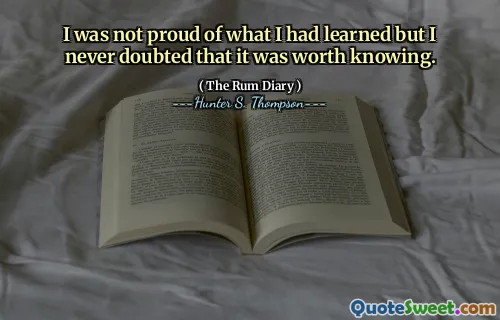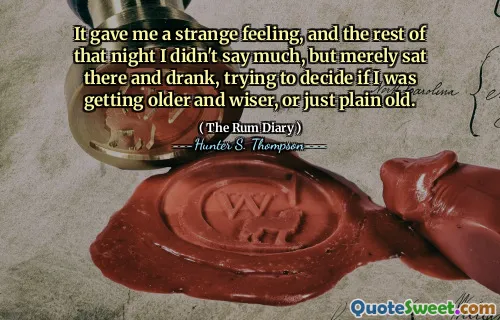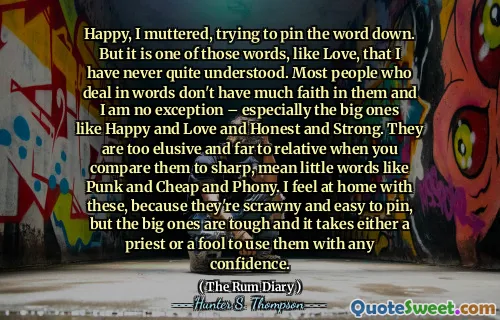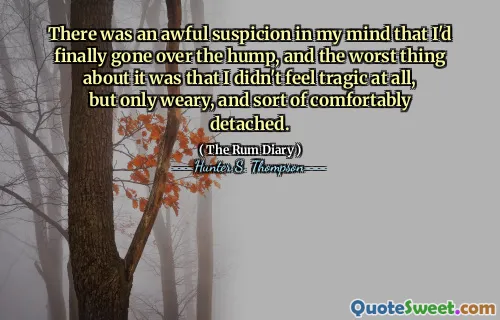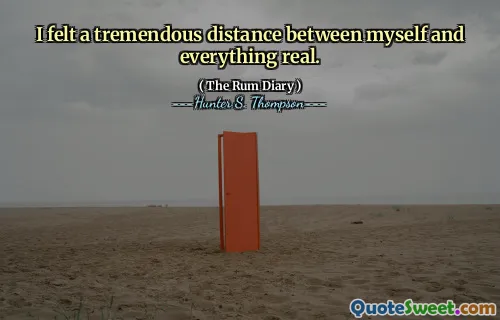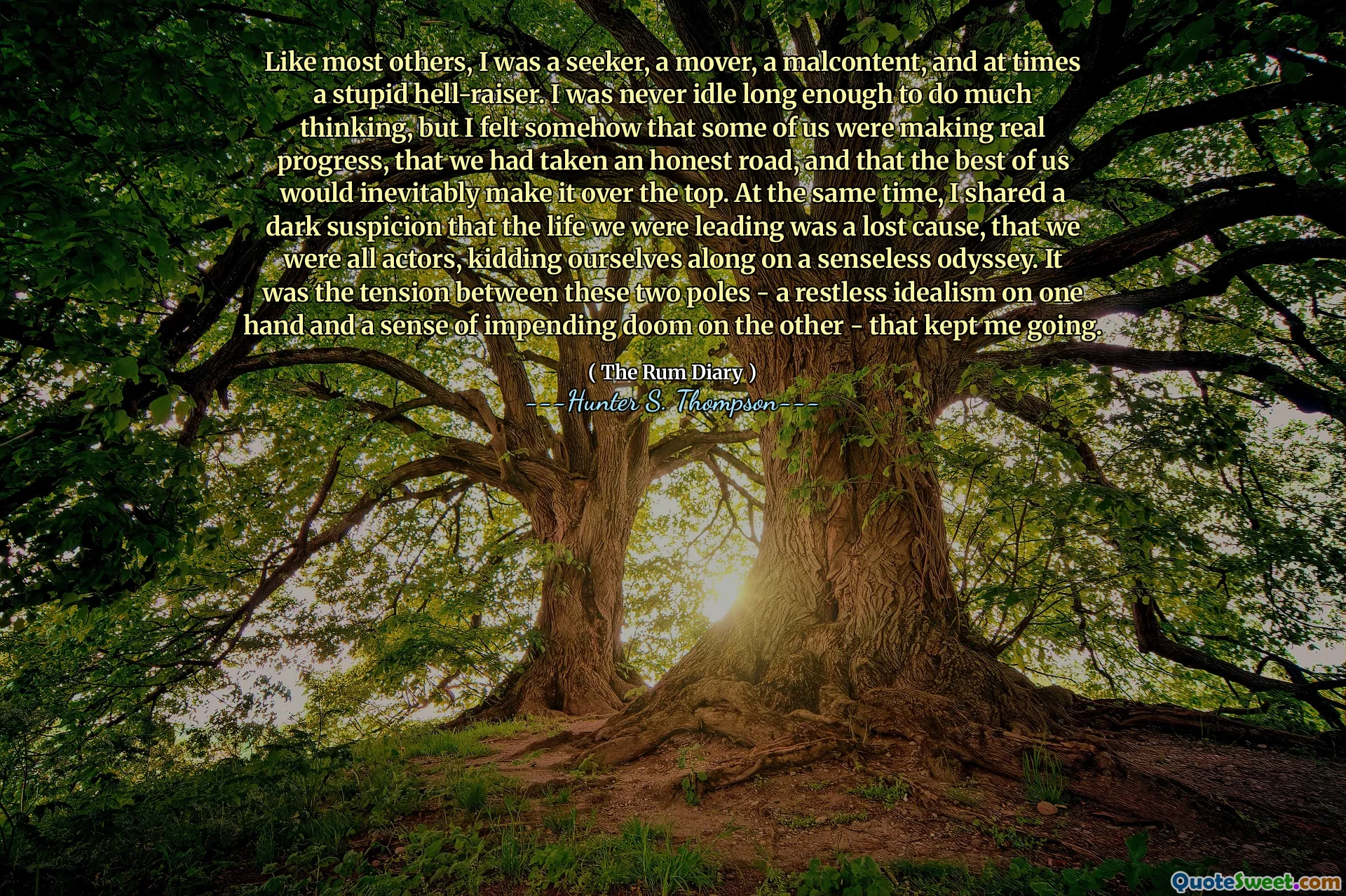
Like most others, I was a seeker, a mover, a malcontent, and at times a stupid hell-raiser. I was never idle long enough to do much thinking, but I felt somehow that some of us were making real progress, that we had taken an honest road, and that the best of us would inevitably make it over the top. At the same time, I shared a dark suspicion that the life we were leading was a lost cause, that we were all actors, kidding ourselves along on a senseless odyssey. It was the tension between these two poles - a restless idealism on one hand and a sense of impending doom on the other - that kept me going.
In "The Rum Diary," Hunter S. Thompson reflects on his dual nature as both an idealistic seeker and a cynical observer of life. He describes himself as active and restless, believing that progress was being made by those pursuing honest paths. This sense of drive, however, is interlaced with doubts about the worthiness of their endeavors, as he contemplates the idea that they might be just playing roles in a meaningless journey.
This dichotomy fuels his motivation, as he grapples with his aspirations while recognizing the pervasive sense of futility. Thompson's internal conflict between hope and despair illustrates the complexity of pursuing dreams within a chaotic existence, ultimately highlighting the struggle between wanting to believe in change and wrestling with the notion that it may all be in vain.
